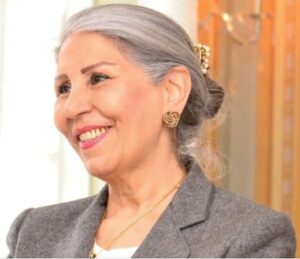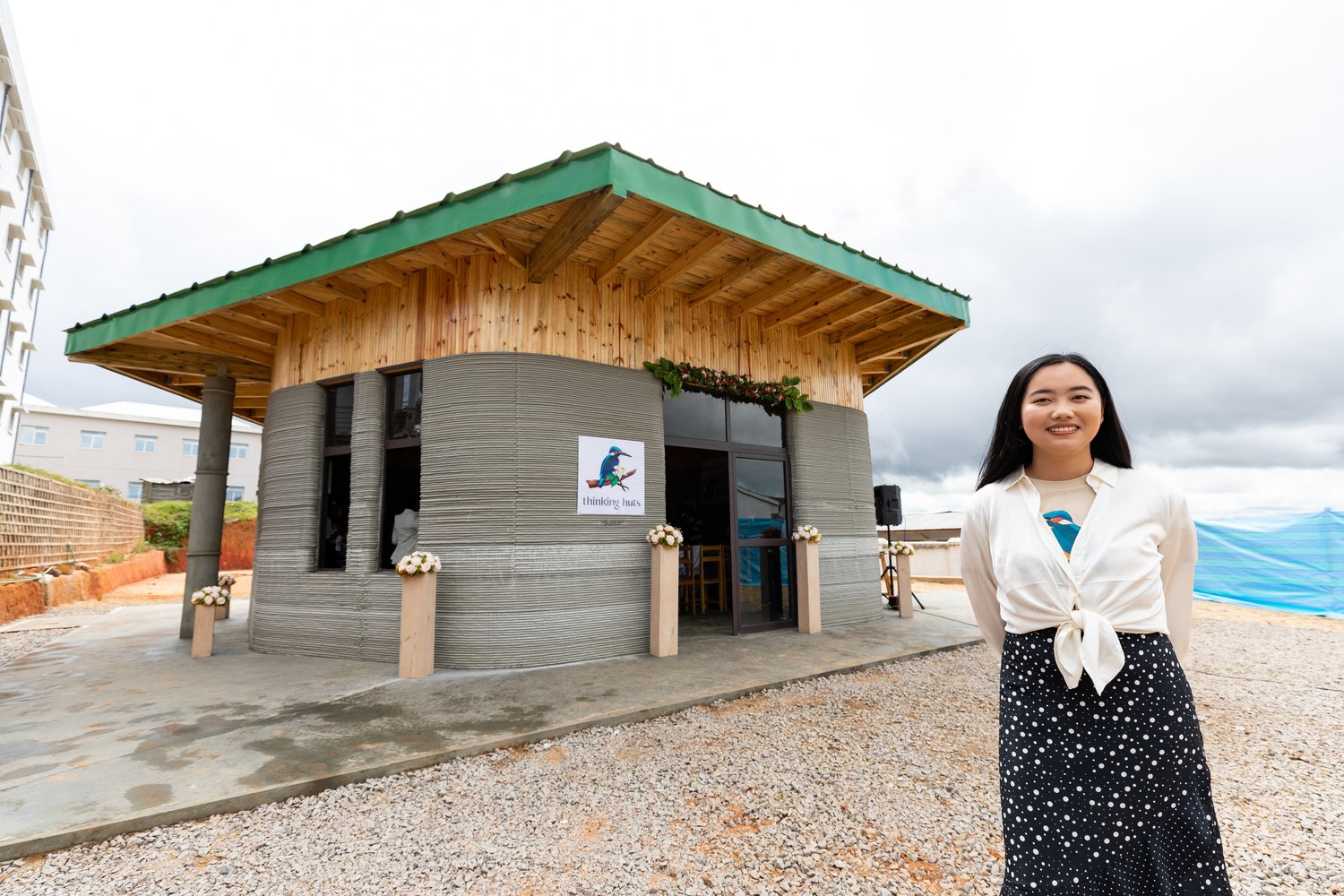 Mahvash Shahriari Sabet, a 70-year-old Baha’i teacher and poet, mother and grandmother, is perhaps even more renowned among people outside Iran than in her own country.
Mahvash Shahriari Sabet, a 70-year-old Baha’i teacher and poet, mother and grandmother, is perhaps even more renowned among people outside Iran than in her own country.
She spent 10 years of her life in Iranian prisons, from 2008 to 2017, solely based on her religious beliefs, before her latest arrest on July 31, 2022.
Most of her poems were written during this time. Her books Free, Love Story, and You Remember Me have been published abroad since her works are prohibited in Iran.
Selections of her poetry titled Prison Poems have been translated into English and have been well-received by people worldwide.
In 2017, Sabet was recognized as an International Writer of Courage by PEN International, the literary freedom of expression group, and has also received a prestigious literary award in Norway. She was made an honorary member of PEN in Austria and Denmark.
Irish poet Michael Longley, the International PEN award winner in 2017 who shared his accolade with Sabet, compared her to a singing bird trapped in a cage, and praised her lyrical poetry celebrating beauty in the world.
Despite Sabet’s past decade in prison, on charges of crimes against national security that her lawyer at the time, Nobel laureate Shirin Ebadi, said were never proven, she has once again been sentenced to 10 years in jail for her Baha’i faith and is currently being held in Tehran’s notorious Evin Prison.
On July 31 of last year, Ministry of Intelligence agents carried out raids in several cities across Iran, arresting a number of Baha’i citizens, including Sabet.
According to Negar Sabet, Mahvash’s daughter, her mother’s arrest took place while both her parents were
 recovering from severe covid and seeking care at a friend’s house in the north of the country.
recovering from severe covid and seeking care at a friend’s house in the north of the country.
The agents raided their home in Tehran and confiscated personal documents, notebooks, money, gold, and even an oxygen-measuring device that her father had purchased during his illness, according to the younger Sabet.
Meanwhile, another group of agents went after Mahvash Sabet and arrested her under “uncomfortable conditions” before taking her to Evin.
According to Negar Sabet, after her mother was transferred to Evin, she was subjected to prolonged and exhausting interrogations despite having covid.
Negar even alleges that the interrogators beat her 70-year-old mother during the interrogations.
Mahvash Sabet was kept in solitary confinement for 42 days before being transferred to Evin’s Ward 209, where multiple people were being held in solitary cells due to overcrowding.
Due to a lack of space, she had to sleep sitting up at night. After five months, she was transferred to the women’s political-ideological ward of Evin Prison.
Negar believes that her mother was arrested without justification: “The last time she was arrested, she was accused of managing the Baha’i community of Iran, even though the government and the Ministry of Intelligence were fully aware of the existence and activities of the community’s leaders and supporters … they have no evidence to support their accusations against my mother,” she said.
“My mother is an elderly woman who spends her time at home writing poetry. They cannot even accuse her of holding a meeting. During interrogations, they repeatedly scrutinized her poems in the hopes of finding something incriminating,” the younger Sabet added.
On November 21, a court session was held for Sabet and Fariba Kamalabadi (another Baha’i citizen arrested on the same day and who had also spent a previous decade in prison) at Branch 26 of the Revolutionary Court of Tehran, presided over by Judge Iman Afshari.
The two Baha’i women were sentenced to 10 years in prison each, after a one-hour trial, during which the judge spent most of the time insulting and humiliating the defendants for managing the Baha’i community in Iran.
Judge Afshari scolded the Baha’is, saying they had not learned from their previous imprisonment.
Sabet and Kamalabadi were sentenced to 10 years imprisonment on charges for which no evidence was presented nor witnesses heard.
Kamalabadi, a 60-year-old Baha’i citizen, had served her previous prison term on the same charges as Sabet; namely, helping to manage the basic affairs of the Baha’i community. But she also had no such role before her latest arrest, and the informal Baha’i leadership group to which both women belonged, the “Yaran” or “Friends” of Iran, was disbanded in 2008 when all seven of its members were jailed for a decade.
Regarding Sabet’s health, Negar said, “My mother is in poor health due to her old age and her previous imprisonment, which has weakened her physically. She suffers from severe asthma, as well as bone pain and bone tuberculosis, which are complications from her previous imprisonment.
“Additionally, her recent covid infection makes it difficult for her to breathe at times, which puts her in danger.
“The long and intense interrogations, along with beatings, have caused her to require continuous medical treatment and care. Due to her frail health, she cannot withstand imprisonment.”
Negar Sabet also said that, based on the family’s past experience, any reduction in Mahvash’s sentence, such as conditional release with bail, leave, and other options, will not apply to her mother’s situation.
The family has even been warned against pursuing any further action for the moment, due to an unspecified flaw in the case, which needs to be resolved before taking any further legal steps.
The authorities are using this excuse to buy more time. This is a repeat of a previous similar scenario, when authorities claimed the case file had been lost, forcing the family to wait additional months.
Before her recent arrest, Sabet used to say that out of every seven days of her life, she had spent one day in an Islamic Republic prison. According to her daughter, Mahvash wants an immediate and unconditional release because she believes that she was detained without reason and that there is no evidence of her attending any meetings or gatherings that could legitimize the charges against her.
Negar said that Iran’s Baha’i community has been “under immense pressure for 44 years, with various forms of repression, such as education deprivation, economic pressure, spreading hatred, and more.”
The Baha’i community wants to “clear up any misunderstandings and tell their compatriots that they want peace and tranquillity and are well-wishers of Iran,” Negar said.
And Mahvash Sabet’s message to the world is one of hope and a desire for the basic rights of citizens in their homeland, her daughter said.




